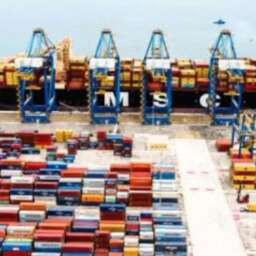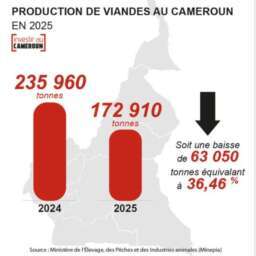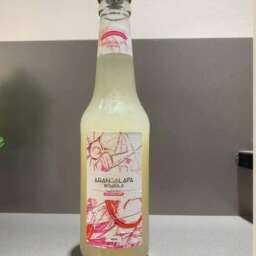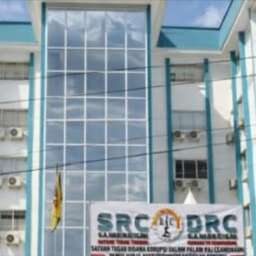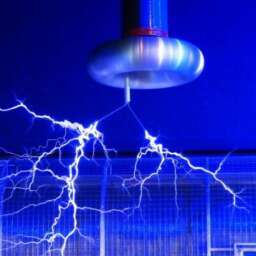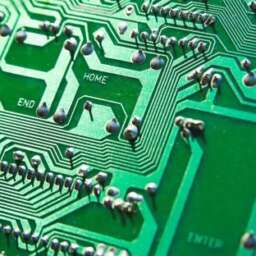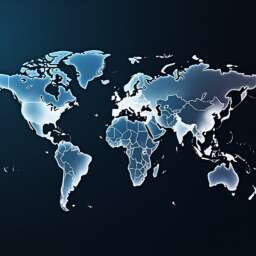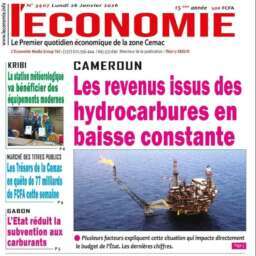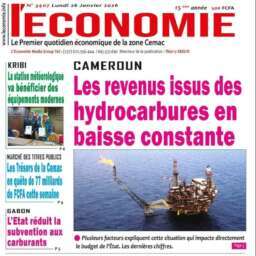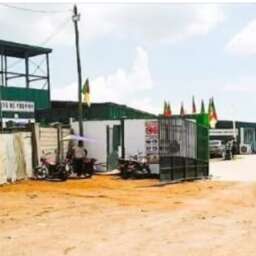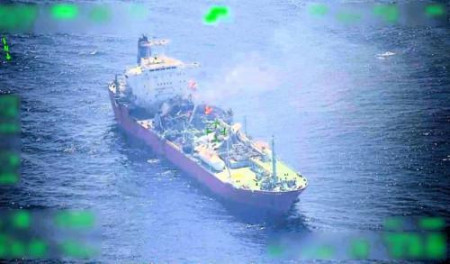- (Business in Cameroon) – The Falcon, a Cameroon-flagged liquefied petroleum gas (LPG) carrier, exploded and caught fire on October 18 near Yemen’s port of Aden.
- Twenty-four of the 26 crew members were rescued; two died in the incident.
- The ship had previously been flagged for technical irregularities and was carrying LPG from Iran’s Assalouyeh port to Yemen’s Ras Isa terminal.
A Cameroon-flagged LPG tanker, the Falcon, caught fire on October 18 after an explosion roughly 113 nautical miles off the coast of Aden, Yemen, according to the United Kingdom Maritime Trade Operations (UKMTO), the British maritime security agency.
The 170-meter vessel, with a deadweight capacity of more than 30,000 tonnes, was fully loaded with liquefied petroleum gas. UKMTO reported that 26 crew members were on board at the time. “Twenty-four were rescued safely by nearby vessels, while two unfortunately lost their lives,” the agency said in a preliminary statement.
Initially, UKMTO considered the possibility of an attack, a plausible scenario in a region where Houthi rebels have repeatedly targeted commercial vessels in the Red Sea and Gulf of Aden. However, the agency later ruled out hostile action, saying there was no evidence linking the incident to any assault. Houthi authorities also denied involvement.
The incident occurred in one of the world’s most sensitive maritime zones, where ongoing regional tensions have heightened risks for energy shipments and global trade.
According to maritime industry sources, the Falcon had previously been cited for technical issues during port inspections in Turkey and India. Tracking data from TankerTrackers showed the vessel was carrying a full cargo of LPG loaded at Assalouyeh, Iran, and was bound for Ras Isa, a Yemeni port on the Red Sea coast.
The explosion has triggered an international investigation to determine its cause—whether technical failure, human error, or structural defect. The probe comes amid tighter surveillance of Red Sea shipping routes due to mounting geopolitical instability.
This article was initially published in French by Amina Malloum
Adapted in English by Ange Jason Quenum






